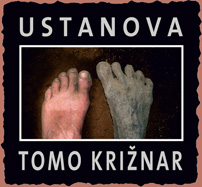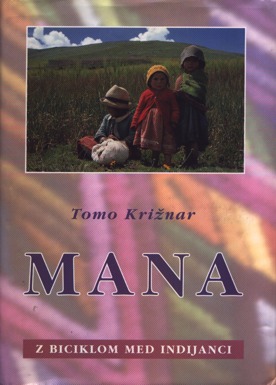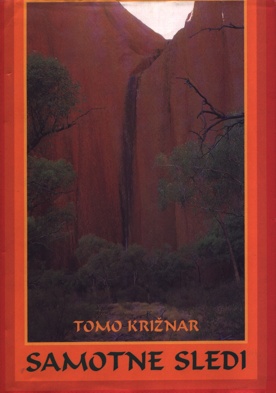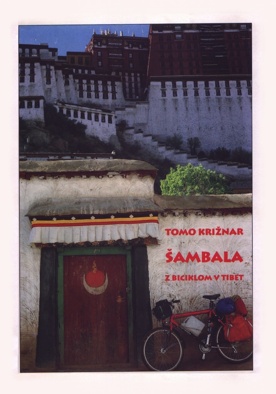Oil and Water
We are looking for a publisher to take the English translation of Oil and Water to press. The book must inform the international public of the genocide of the 21st century. 40 pages of the book have been translated and you are welcome to read it. It will give you an idea of what the book is about. The original has 470 pages plus 127 pages of graphic material.
Oil and Water - 40 translated pages (.PDF file)
Tomo Kriznar’s new book Oil and Water depicts the conflict on the black continent, going on between two superpowers, China and the USA. It describes the suffering and horrors their narrow geostrategic goals are inflicting. The material for his book has been accumulating over the past ten years, as Tomo had aspired to write down his experience, encouraging influential and powerful people of Europe and the United States to prevent the extermination of the Nuba people, ‘the last remaining natives’ in central Sudan. When the biggest adventures were nearing their end in 2003, promising a happy ending to his new book, it hit like a bolt from the blue – a new rebellion of the African natives in Sudan, this time in the western province of Darfur. He has witnessed the oppression and the extermination of the native peoples in the Nuba Mountains and Darfur by their government. He has witnessed a silent war for natural resources between China and the West and cannot tolerate the fact that we are letting 21st century’s greatest genocide to continue.
Oil and Water was thirty years in the making. In Sahel, the stretch of savannahs between the Sahara and rain forests in the heart of Africa, Tomo Kriznar has been witnessing climate changes and local wars for water since 1970’s. He believes fighting for water is a result of social disintegration exploited by foreign forces fighting their wars for oil and other natural resources. This true literary story begins with Tomo lobbying for survival of the ‘last black Indians’ in the Nuba Mountains in 2000 with one of the most influential women in Europe – Leni Riefenstahl, the famous director of propaganda films, who helped Hitler in his Nazi campaign. He then approached the toughest advocates against the extermination of native peoples, the National Geographic Magazine, the Holocaust Museum and the State Department in Washington. The noble adventure continues with Tomo Kriznar becoming a special emissary of the former Slovenian president Janez Drnovsek to the western Sudanese province of Darfur. The biggest Slovenian humanitarian and political action World for Darfur ends with Tomo being sentenced to two years in prison for espionage. After his petition for clemency was granted, Tomo did not give up on his humanitarian pursuit. He returns to Sahel over and over again and keeps coming home with a message that cancerous metastases are spreading from Sudan and they will, if we do not react, soon reach us in the EU fort.
His suggestion on what to do is perfectly clear. The women and children, who are being raped and exterminated by Janjaweeds, must be supplied with hundreds of thousands of cheap miniature spy cameras that cost less than 10 EUR in China. With those atrocities recorded and dispersed on the world web via satellites they can be inscribed in human conscious and exposed to justice. The humanitarian coordinator of Darfurian rebels, Suleiman Jamous, reports that the small spy cameras were more effective than 20,000 soldiers of the United Nations and millions coming from the EU funds.
Because the Southern Sudanese independence referendum of January 9th 2011 poses a threat of a new war between the American and Chinese slaves, the book must reach political circles as well as international public as soon as possible.
In the last forty years, precipitation in Sahel has diminished by thirty per cent. The Sahara is spreading at a speed of seven kilometres per year. Fifty million natives can no longer survive with their traditional manual labour.
Wars for water among native peoples and tribes are used by powerful foreign forces in their war for oil and other resources. Africans are the cheapest soldiers. Death is free in Africa. The African people are once more slaves of foreign warlords. ‘Blood is not water. Blood is thicker than water. But oil is thicker than blood.’ Tomo Kriznar
Oil and Water is Tomo Kriznar’s latest book, self-published in December 2010.
It will be his first book translated into English. All his books are national bestsellers and regularly reprinted.
The original is in Slovenian language. It has 472 pages plus 127 pages of graphic material.
********************************************************************
NUBA: pure people
The Nuba Mountains have been subject to a cease-fire since 2002, and this has been incorporated into the Comprehensive Peace Agreement. International personnel have participated in a peace-monitoring mission since 2002. The book and films were made before that therefore they don't represent the current situation.
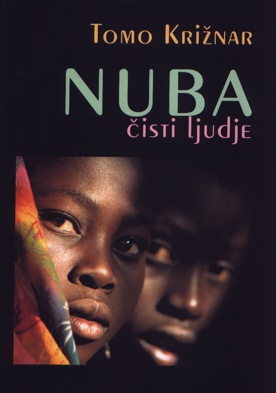
The Nuba Mountains are natural granite fortresses in the savannahs of South Kordofan in Sudan, and have throughout history provided shelter for various African peoples running away from slave hunters. The harsh natural conditions are probably the reason why the tribes living in the Nuba Mountains never established any institutions or social hierarchies. Instead of being led by tyrants, they gathered around the village sages who take care of peace, heal the sick and make rain. Rather than developing a material civilisation, the Nuba cherish the fertile life power and the great Secret which, they believe, is responsible for the life of the universe, and therefore nourishes everything that exists: plants, animals and humans.
The Nuba Mountains not only preserved the primordial Africa, but also original human sensitivity and democracy, and are therefore a unique phenomenon.
When I first visited the Nuba Mountains in 1980, I met the happiest and healthiest people on the planet. I called them pure people.
Nineteen years, and two million victims of the Sudanese civil war later, the Nuba Mountains are sealed shut and cut off from the world.
Fifteen years ago they were two million strong, and today there remain only 250,000 who are sill fighting for the right to be Nuba.
The genocide is being perpetrated in secrecy: no observer, no reporter, no humanitarian organisation is allowed to enter the area.
In the dry season of 1998, with the help of my bike I managed to sneak through the government lines....
For more detailed synopsis of the book and documentary film: NUBA, Pure People click here.
Published: 1999, published by the author
248 pages
15 x 20,5 cm
ISBN 961-90034-4-6
********************************************************************
MANA: by bycicle among Indians
published: 1996, published by the author
332 pages
15 x 20,5 cm
ISBN 961-90034-2-X
********************************************************************
LONELY PATHS
published: 1993, published by the author
259 pages
15 x 20,5 cm
ISBN 961-90034-1-1
********************************************************************
SHAMBALA: to Tibet by bycicle
published: 1993, published by the author
321 pages
15 x 20,5 cm
ISBN 961-90034-0-3
********************************************************************
IN SEARCH FOR LOVE or Around the World by Bycicle
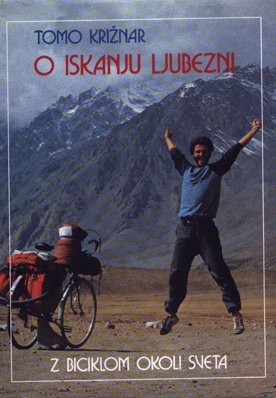 published: 1990, published by the author
published: 1990, published by the author404 pages
15 x 20,5 cm
ISBN 961-90034-3-8


